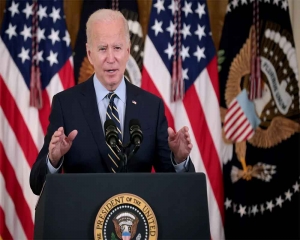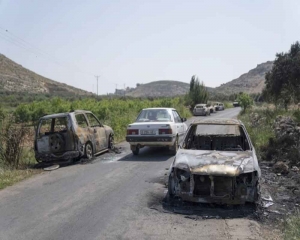Sharing of power and resources is fundamental to inclusive democracy and growth which needs to be reflected in our resource governance policy. The poor standard of living and persistent backwardness of the people of the State of Odisha is more linked to its ownership over the resources and its best utilisation in the interest of its common people.The legislative power relating to resource governance is divided into three lists, the Union list, the State list and the Concurrent list, in our Constitution which needs to be relooked in the context of globalization and emerging conflicts in resource rich States such as Odisha which has been deprived of its legitimate dues in many ways.
Odisha has advantage of natural resources such as land, forest, water, mineral and seashore but how these resources are being used for the people of the State and who benefits more out of these resources need to be examined to ensure justice for the State and particularly for its marginalized sections.
In spite of resources, a pertinent question is why the State continues to be backward and one of the poorest in the country. It is demanded that the constitutional provisions and existing laws need to be reexamined for effective implementation in view of emerging resource conflicts relating to utilisation and sharing of resources within the country and also within the State among its people. The national and State interests must be inclusive of its people.
There has been a continuous debate over resource federalism in the country with demand for more legislative power to the States in mater of resource governance so that the States can have full freedom over management and utilisation of these resources. The nationalisation of resources has vested ownership with the Centre mostly dominated by developed States with influence over Parliament. The economic liberalisation and privatisation of resources has encouraged the centralisation of decision in order to facilitate handover of resources without much administrative problem where the role of the States has been further sidelined and getting minimised.
There are also incompatible areas among the States relating to resource distribution among States such as river water sharing; conflict over Mahanadi river water between Chattisgarh and Odisha being a burning example. In this context, the constitutional provisions under Articles 262 and 263 relating to dispute relating to water of interState river or river valley and coordination between States are not worked out effectively. As a result, the problem has been further complicated pertaining to resource sharing. The privatisation of water resources has additionally aggravated the water conflicts with more focus on corporate patronisation. There has been competition among State Governments to supply water to the industries at the cost of agriculture and basic human need.
The people on the bank of the river and outskirts of reservoirs are not getting adequate water for consumption and public demands for water are never properly dealt with priority by the Government.
The other important area is utilisation and benefit sharing within regions of the State and among different social groups. It is being observed that the national and State interest has not been inclusive of common man in sharing of resources and benefits out of it, especially with the marginalised sections who are historically alienated from the resources. So while demanding more power to the State on resource governance, it is equally important to see its decentralisation within the State and across different social groups; then only it serves inclusive national and State interest.
Though land is a State subject under Article 246 list – II no 18, the State is not implementing land settlement provisions in resource rich areas. The Odisha land Reforms Act 1960 (section 45) says 70 per cent of the surplus land of the village vested with the Government shall be settled with persons belonging to SC and ST communities. But this has not been implemented. The landless people have been demanding for homestead land for housing and agricultural land for livelihood but they are grossly ignored.
Take for an example the mineral resources such as coal in Odisha which is a national resource and its governance is in the Central list under Article 246(list 54). It has been always told that Odisha is blessed with mineral resources having one third of the coal deposits of the country but both nationalisation and recent privatisation have not been beneficial for the State. The State in general and the people in coal areas in particular have sacrificed everything for national interest but a sizeable poor people there are even not getting adequate drinking water, a piece of land for housing, livelihood and other basic human needs.The coal nationalization may be good but it has been no way beneficial for mineral bearing States.
The new legislation for privatisation of coal sector vested more power with the Centre for allocation of coal blocks. The coal royalty and related decisions are made by the Centre. The governance of coal sector is under Central Acts such as The Coal Bearing Areas (acquisition and development) Act 1957 and the MMDR Act 1957. It is also a fact that a number of Central public sector companies like the MCL, NTPC, Nalco and SAIL are the major lease holders. How these public sector companies are exceptionally helping the State by sharing its profit while using the resources needs a serious examination.
The State has virtually no role in the matter of mining lease except getting royalty fixed by the Centre. The State cannot impose any tax over coal or influence over the rate of royalty which is arbitrarily fixed, thereby depriving States of their genuine share. The local people staying over the coal area have no rights over the land having coal deposits and at any time they will be evicted for national interest. There has been no survey or settlement of the land. Even the land in 5th Scheduled areas is acquired for mining violating the Supreme Court judgments. The land laws of the Centre such as the SEZ Act 2005 and the Right to Fair Compensation and Transparency in Land Acquisition and Rehabilitation and Resettlement Act 2013 in place of old land acquisition Act 1894, further justifies that the Center gets a privileged position over land resources. It is also realised that whatever financial resources the State gets as tax, water tax, land tax and royalty, the benefits do not further percolate down to the local level and exclude the marginalised group in benefit sharing. As a result, the resource rich areas and the marginalized sections remain backward and undeveloped in many respects.

























